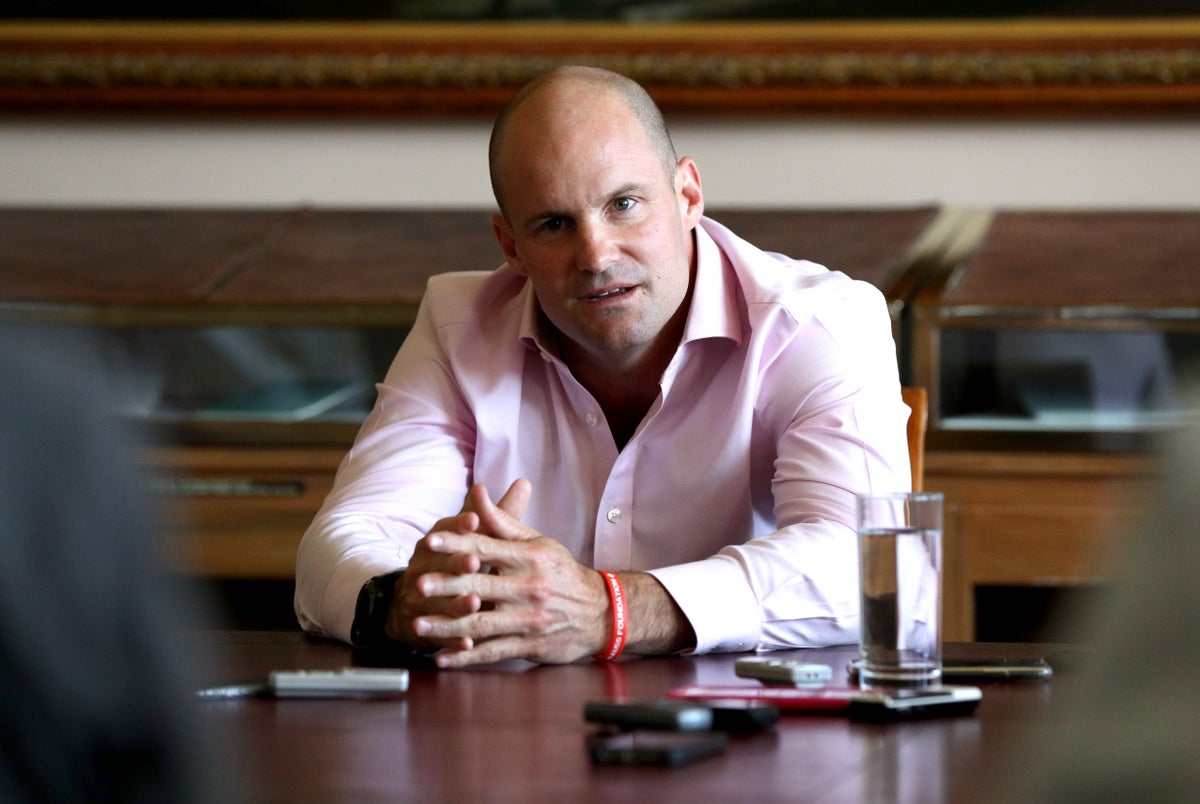
Sir Andrew Strauss has called on county chiefs to vote through proposed reforms of the domestic structure which would reduce the amount of cricket played, stressing: “The status quo is not an option”.
The former Test captain has spent the last six months overseeing a high-performance review for the England and Wales Cricket Board, launched in the aftermath of last winter’s Ashes thrashing, and has presented 17 recommendations.
Fifteen of those fall under the remit of the ECB and already have the required backing, but two key proposals involving a wholesale reorganisation of the county calendar need the support of at least 12 of the 18 first-class counties to go ahead.
Strauss’s panel advocate a reduction from 14 Championship matches per team to 10, with a six-team top division sitting above two secondary conferences, which would play off for one annual promotion.
Games would be played more evenly throughout the season, rather than the current model that sees four-day cricket crammed in at the start and the end of the campaign, while the possibility of red-ball ‘festival’ matches during the August window for The Hundred is also mooted.
The Vitality Blast, a popular cash cow for several counties, would also be pared back from 14 group games to 10, with the Royal London Cup moved to April as a curtain-raising knockout tournament.
The overall reduction in days is intended to create time for more rest, coaching and analysis, creating more intense competition.
While that is likely to go down well with large proportions of players, many of whom have found the 2022 model an unsatisfactory jigsaw of competitions and formats, there is a clear financial implication at stake. Fewer matches mean less revenue, not only at the gate but also among the membership, who will effectively see less cricket for their money.
But Strauss, whose bold mission statement is to make England the best cross-format team in the world within five years, believes change is needed.
“The status quo is not an option. Everyone in the game is telling us this. We have listened, we must now act,” he said.
“I honestly feel this set of proposals can make a massive difference to the game. Of course, anything in our domestic structure is very contentious and it’s for the game to go away, talk and debate.
“I think we can still do a lot of good without the final two recommendations, but I think they’re a good demonstration of the hard decisions we need to make as a game, and how serious we are in trying to achieve this ambition.
“What we need to understand is how important it is for us to have a coherent schedule, and the answer to quality is not quantity. A higher standard, more intense red-ball competition should be a great thing for members, for players, for ground staff, for coaches. We need to understand it’s not all about volume.
“We think it’s a very complete package but there are going to be elements of it that certain people feel are not in their interest, and we understand that. That’s the reality of the domestic structure. You can’t solve one thing without unsolving another.”
Among the other suggestions which the ECB will take forward include a pilot use of the Kookaburra ball in county cricket – used predominantly by southern hemisphere Test nations as opposed to the Duke ball utilised in England – along with a return for the overseas ‘North v South’ fixture, expanded and refocused England Lions and England age-group programmes and a fresh look at the central contract system amid threats from the global franchise circuit.
Central funding for counties would also be linked to performance objectives, including providing players to the international pathway, and incentivisation for good quality pitches is also suggested.
A final decision on the structural changes should come by the end of November, but the earliest they could be adopted is the 2024 season – meaning one more year of a structure that Strauss’s team has effectively discredited.
“We’ve been in a race against time to get these recommendations out there so that the counties can vote on it for the 2023 season, but I think we’ve run out of time,” he said.
“But these are difficult conversations and important decisions. Sometimes you’ve got to look at the bigger picture and understand that it’s better to walk to the right solution than jump off the edge of a cliff.”







